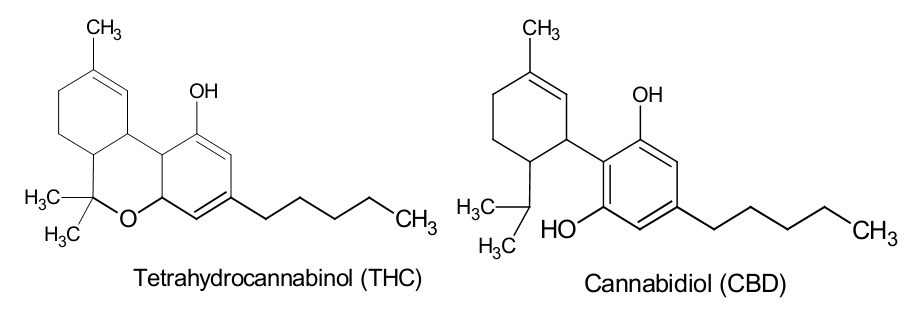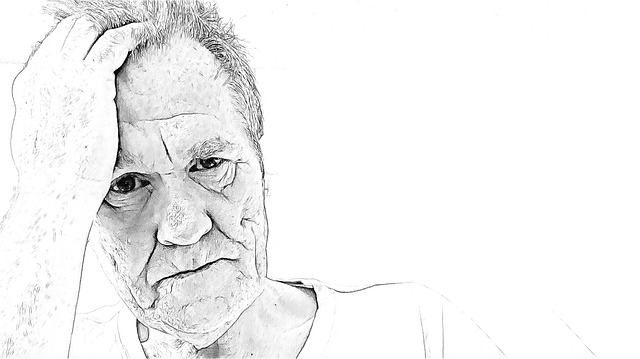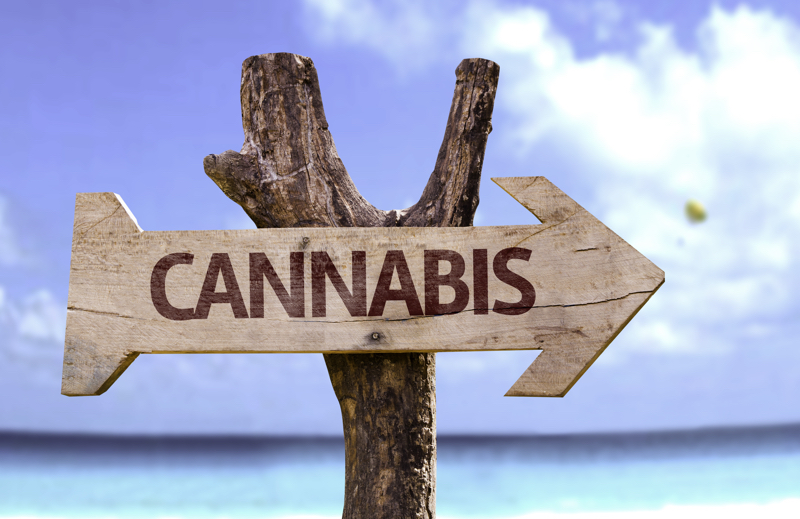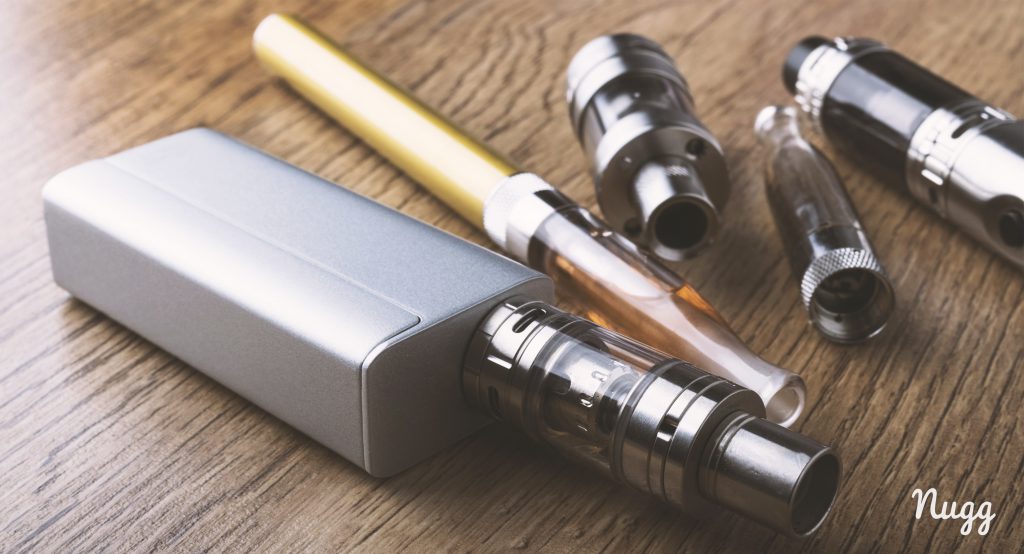The Ultimate CBD Recovery Guide
Leave a Comment
From professional athletes to children dealing with debilitating illnesses, people from all walks of life are ditching prescriptions and turning to more natural plant medicine. But it’s not just any plant; they’re seeking relief from one particular cannabis compound: cannabidiol, or CBD.
Even if you don’t use cannabis, you’ve probably heard of CBD. This cannabis compound took the nation by storm in 2013 when CNN reported on a six-year-old girl named Charlotte Figi. Four years prior, she was diagnosed with Dravet Syndrome, a myoclonic form of epilepsy, that prompts as many as 300 seizures a week.
After her parents administered an oral dose of CBD oil twice a day, that number dropped to just two or three seizures each month!
Since Charlotte’ story became public CBD has continued to rise in popularity. Most dispensaries carry CBD flower, vape cartridges, edibles, and topicals. Many health food stores now sell hemp-based CBD extracts, even in states that prohibit medical cannabis.
Because CBD is non-psychoactive (it doesn’t get you high), many who don’t smoke cannabis are able to enjoy the reported health benefits of this miraculous cannabinoid.
Aside from children finding epileptic relief, CBD is also gaining traction among pro athletes. Former NFL player Leonard Marshall, a former defensive end for the New York Giants, suffered a traumatic brain injury stemming from concussions, better known as CTE.
Rather than consuming a daily pharmaceutical cocktail, Marshall turned to hemp-based CBD oil to deal with CTE side effects like persistent headaches, mood swings and depression. Now he experiences relief within minutes after taking CBD, and his migraines are gone.
But what exactly is CBD and what can it actually do? We’ve separated fact from fiction to help you understand the latest research, how CBD can be used to aid recovery, and a handful of products that the Nugg Team has quality tested and approved.
What you'll learn in this article:
[Click any of the section titles below to jump there]
What Is CBD?
CBD is one of many chemical compounds called cannabinoids found in the cannabis plant. The most popular and most widely known is tetrahydrocannabinol (THC), which makes you feel stoned. But CBD is different. The World Health Organization concluded that CBD alone doesn’t appear to cause intoxication.
In addition to seizure disorders, CBD is also frequently used to treat anxiety, insomnia and chronic pain. In fact, pain is the number one reason why pro athletes are putting away the pills and turning to cannabis.
When professional cyclist Andrew Talansky strained his hip flexor muscle, he turned CBD oil and found instant relief. Aside from that, he also tells Outside Magazine that the benefits didn’t stop there; he also felt less anxious and his sleep improved dramatically.
While CBD is generally considered safe to use, it does have the potential to affect certain medications, including blood thinners, so consult your physician before taking CBD.
Not all cannabis has high CBD levels; in fact, many strains available at your local recreational dispensary typically have little-to-no CBD. That’s because these commercially available strains were historically bred for their high THC content. This is changing.
Cannabis breeders increasingly recognize the demand for potent CBD strains. Some are beginning to select strains based on their ability to yield a high CBD and low THC: Sour Tsunami, Charlotte’s Web (named after Charlotte Figi), Ringo’s Gift and AC/DC, for example, typically test high in CBD.
What Do Researchers Say About CBD?
Many studies suggest that CBD may have positive health benefits. Researchers have found that orally-administered CBD may contain significant anti-inflammatory properties, offering the potential for pain reduction and reduced swelling. Another study reported that topically-administered CBD can help reduce pain and arthritic inflammation.
Neuroscientists have also studied CBD for its potential to manage symptoms of certain neurological disorders and its potential immunosuppressive properties. Another neurological study even suggested CBD might help reduce brain damage from neurodegenerative conditions like Parkinson’s, Alzheimer’s and Huntington’s disease.
One patient study reported that CBD use in conjunction with pharmaceutical medication helped slow the progression of some ALS symptoms, giving the patient almost complete use of two affected limbs and slowing the pace of muscular degradation.
Like other cannabinoids, CBD interacts with the body’s endocannabinoid system (ECS), which regulates endocrine function (glands that secrete hormones) and controls our energy balance. In fact, our ECS plays a key role in regulating a wide range of body processes, from brain function and immune tissues to our endocrine glands and digestive system.
Researches have also found that CBD may interact with receptor sites outside the ECS, illustrating the potential to treat inflammatory bowel diseases (IBD) like Crohn’s disease and ulcerative colitis.
How Can I Use CBD to Help My Body Recover?
Cannabis patients and recreational users in legal states can purchase high-CBD flower, concentrates (including vape cartridges), topicals, edibles and tinctures.
If you don’t have this access, you might find CBD oil for sale online, but it’s most likely hemp derived and doesn’t offer the same benefits that MMJ patients report. This is due to the “entourage effect,” which means all of the cannabinoids and terpenes may offer greater benefits when combined as a whole plant or a whole-plant extract.
Because CBD shows promise treating inflammation, you may be wondering how to incorporate CBD into your recovery plan. First, talk to your doctor about your using CBD. Your doctor will need to review your health history as well as your medication list to make sure there is no risk of adverse side effects.
If your doctor recommends the use of CBD, then Nugg’s Cannabis Concierge service can help you find the right cannabis products for your needs, including products that are high in CBD. Here are a few of our favorites!
Smokable Flower High in CBD
Smoking and vaping cannabis flower remain one of the most popular methods of consumption. But smoking a bowl or a joint doesn’t necessarily mean you have to get stoned! Try these Nugg favorites, which are high in CBD and low in THC to give you greater relief without causing intoxication the way most high-THC cannabis strains do.
- Ritual CBD 20:1 1/8th (Henry’s Original): Offers a clean-burning flower that boasts a 20:1 ratio of CBD: THC. Our reviewers gave this strain high marks for its delicious aroma and superior smoke quality. This Henry’s Original strain also performed well in our ash test, and it delivered consistently exceptional effects.
- Harmony Rose CBD 1/8th (Flow Kana): This prepackaged eighth of is pleasing to the senses and sure to meet your needs. The appearance, aroma, taste and effects of this high-CBD strain earned high praise from our reviewers, who also appreciated Flow Kana’s above average packaging and labeling.
- JellyFish CBD (Glass House Farms): Nugg’s reviewers ranked this strain’s aroma and taste average among the pool, but Glass House Farms stood out in terms of its effects, consistency and clean-burning ash test. For the price, JellyFish offers a decent option for patients interested in trying CBD flower for the first time.
Vape Cartridges High in CBD
Many patients looking for quick relief appreciate the convenience that cannabis vape pens and cartridges offer. Vaping gives you rapid onset of effects, no lingering smoke or smell, and the ability to easily dose out your medication. You can take a couple of hits then put it away, whereas a joint requires you to keep smoking or stub it out.
And the best thing about vaping? No harsh smoke on your lungs, which is especially beneficial for professional and endurance athletes.
World-renowned mixed-martial-arts fighter Nate Diaz vapes CBD oil to help recover from the physical torment of the ring. Despite the match’s outcome, Diaz takes a beating. Vaping CBD oil helps his body heal and reduces inflammation so that he can prepare for the next fight.
These vape cartridges/pens received high marks from our Nugg reviewers and can offer the relief you need:
- Calm 10:1 CBD disposable pen (dosist): Our reviewers loved the packaging, labeling, and overall quality that dosist delivers. This disposable pen makes it easy to microdose, giving you precisely measured vape hits with a consistent 10:1 ratio of CBD:THC. No buttons or knobs, just a mouthpiece to inhale. The vapor tastes very flavorful, the oil is of high quality, and the effects come on quickly.
- ACDC 3:1 CBD, 0.5 g Pax Era Pod (Bloom Farms): Our reviewers praised the taste, vapor quality, oil quality and effects. You’ll need to purchase a proprietary Pax battery that’s a bit costly but won’t regret it. You can swap out pods as easily as you insert a USB drive–and it pairs with an app that lets you adjust to the exact temperature you want. A quality pod in a pleasing package.
- Marley Red CBD Rich, 0.5 g (Marley Natural): This vape cartridge offers a great tasting product with quality oil, decent vape quality and pleasant effects. The packaging left our reviewers a bit dissatisfied, but it’s a great product at a reasonable price – what’s not to love?
Edibles High in CBD
While edibles offer long-lasting effects, they take longer to kick in than smokable or vapable cannabis. All of the CBD edibles listed below contain some degree of THC in addition to CBD, meaning you may feel more intoxicating effects than you would with a pure CBD treat.
So we recommend caution if you’re new to cannabis or edibles. Infused treats affect patients differently than smoking or vaping, so don’t overdo it. Remember to start with a low dose and be sure to wait at least an hour before increasing.
- 1:1 THC to CBD Dark Chocolate (Chill): This delivers a balanced ratio of THC:CBD with 50mg of each per piece. Our reviewers found it well packaged, easy to dose, flavorful, consistent and effective. It’s a great product for a reasonable price.
- 1:1 THC to CBD Cinnamon Mints (Breez): Also balanced with an equal THC:CBD ratio, the bottle has 20 mints containing 5mg of each in every one. Nugg reviewers appreciated the taste, discretion and ease of dosing.
- 1:5 CBD to THC Indica Milk Chocolate Bar (Garden Society): If you’re new to edibles, this may not be the best place to start. It’s got a decent dose of CBD, 16mg, but also comes with a relatively high THC content, 80mg total! The effects hit hard so use caution; although veteran edibles eaters will appreciate the taste, texture and effectiveness.
Topicals High in CBD
Topical products are applied externally to the skin. You can use topical balms or transdermal patches to target specific areas where you’re experiencing localized pain or inflammation. Lotions and soaking agents are also great options, and they easily offer widespread or whole body relief.
The best part is that you can easily use these products and, with the exception of transdermal patches, most CBD topicals don’t get you stoned!
Post-workout recovery, alleviating chronic pain, other recent injuries – topicals offer the symptom relief you need to rest up, sleep well, and feel better.
We understand that the number of cannabis options may be overwhelming, especially if you’re new to cannabis. Have questions? Our Cannabis Concierge service is here to help! Contact Nugg today to get the information you need and the medicated cannabis products you want!
THC vs CBD: Their Effects, Health Benefits, & Medical Benefits
1 Comment
THC versus CBD. What’s the difference, and what does it mean for your marijuana consumption?
What you'll learn in this post:
[Click any of the section titles below to jump there]
“This Is a Miracle Drug”
Poolside in Covina, California, “Sylvia”* daintily purses her lips and takes a quick rip of her joint, deceptively potent despite its modest roll.
“I purchase only top shelf stuff. I learned from my kids…quality over quantity,” she smiles through the tendrils of Bubble Gum scents as they waft through the air.
“I have a little bit of everything. Some glaucoma. Nausea from my heart medicine. Arthritis in my hands. And trouble sleeping and anxiety, most of which started when my husband passed away five years ago.” She issues a wry grin and says “Now I don’t have to go out much, so I’ve become quite the bud-tender.”
She says this all in an unflinching, matter-of-fact manner, as if describing a medical procedure. “When someone recommended medical marijuana years back for all my ailments, I laughed. I hadn’t used the stuff since high school, and even then I was not even a recreational user.”
But she got a prescription, and now expertly names of her favorite strains with the energetic vigor of a Napa Valley sommelier. She fingers a particularly purplish offering and notes “We just got this in. See the hairs on this one? How many crystals? This is super THC-loaded!”
Cannabis & the Cannabinoid Connection
Marijuana’s strains can be as colorful and varied as wildflowers themselves, yet all the plants have a remarkably popular way of discussing and measuring potency: THC.
All marijuana plants contain dozens of cannabinoids. Some are very well-known. And the undisputed king of all cannabinoids is tetrahydrocannabinol. Name-checked in music videos and a familiar acronym to even the most conservative critics, THC sits atop the mountain of infamous marijuana chemical compounds.
When enough is consumed, THC is believed to be primarily responsible for the head rush associated with marijuana, the euphoric “high” feeling that users crave. When discussed by critics as weed’s role as a gateway drug, this “buzzed” feeling tops the list as the most worrisome element, leading users down the route to addiction and harder substance abuse.
But amidst the sticky leaves of the bud plant lies a plethora of other compounds and cannabinoids besides THC.
As marijuana cultivation has become a more accepted past-time, cultivating methods that enhance these other cannabiniods is becoming a serious science for both medical researchers and hobbyists. Chief among them is CBD (we’ll soon uncover the mystery behind THC vs CBD), short for cannabidiol.
Chief difference between THC vs CBD, simply put, is THC gets you stoned and CBD does not. The fact that patients can be treated with CBD without the troublesome side effect of getting stoned has lead to an intense look at CBD’s potential and future uses in both the recreational and medical cannabis industry.

The concept of safer medical marijuana with less side effects opens a world of possibilities of treatments, not just limited to humans.
“I’ve even given [medical marijuana] to my dog. She was thirteen and half blind, and her legs started to go,” Sylvia reveals. “Friends told me to put her down, but I just felt she had more time, and I hadn’t tried everything. I heard that there was cannabis oil you could give your pets, and I did the research.”
Luther, a surprisingly spry 16 year old dachshund mix, lays glued to Sylvia’s thigh on the couch, contently snoozing the day away. “This is a miracle drug. Anyone who says otherwise just doesn’t have a clue.”
“People Won’t Hold It Against You”
“Emily”* sits under the forlorn bleachers of her local high school. Her older boy cousin has had a connect in Berdoo for years. This slummy San Bernardino section of patchworked tract houses and failed commercial ventures projects a declining future through the hazy afternoon sunlight.
An opaque cloud explodes from her mouth as she smoothly slips her vape pen back into her pocket. “Vaping is literally the best thing to happen to weed. I vape everywhere now.”
The very picture of the recreational user, Emily nonetheless carries the picket fence picture of an ideal child to a tee. Boasting a GPA “in the high 3’s” and a veteran of several school organizations, she has already been accepted to three colleges, with no final decisions made. “I’m still waiting on Stanford, but I don’t know. I’m thinking I may stay local.”

“Smoking completely helps me study and keeps me focused. I always figured, rather than some of that nasty chemical stuff, why not use the all-natural stuff I’ve already tried?” she reasons. “I’m not saying we should all self-medicate, but I think smoking weed is much more like drinking coffee or having a cigarette than injecting a needle in your arm.”
Especially when you consider how the THC vs CBD conversation reveals that consuming different types of cannabis does not lead to madness and debauchery. Instead, different people can experience different medical and recreational applications and benefits of marijuana.
Taking a Hit Without Getting Lit
A leading argument against legalization of marijuana is the unpredictable reaction different people have, as well as proper diagnosis/dosage/strain versus recreational usage.
See also: 7 Tips to Control Your Cannabis Dosing
Both THC and CBD are found in marijuana, and both arguably have medicinal qualities. But both can provoke significantly different reactions in people, and this difference has become the central argument in the future of medical marijuana. It truly is: THC vs CBD.
Probably the main difference between the two ingredients is the psychoactive component. THC has been well-documented to cause anxiety or paranoia among new users. However, CBD is particularly non-psychoactive, meaning there is no feeling of euphoria associated with getting high.
In fact, CBD not only counteracts the effects of THC, it can reduce anxiety when administered by itself. Therefore, CBD is favored by the medical community, which prefers treatments with little to no side effects.

There is also the element of antipsychotic properties. THC produces psychosis like effects but CBD can protect marijuana users from this “super high.” CBD is actually being tested as a possible anti-psychotic medication and solution for illnesses that range from bi-polar disorder to schizophrenia.
Recent research published by Neuropharmacology reveals that CBD “induces rapid-acting anti-depressant-like” effects. “Our findings indicate that CBD could represent a novel fast antidepressant drug, via enhancing both serotonergic and glutamate cortical signaling,” explained researchers.
Though she had never before heard of the difference of various marijuana chemicals (THC vs CBD), Emily was sold on CBD’s future benefits.
“I’m a huge fan of CBD research!” exclaims Emily. “If it’s true that you can get the same productive results without the high, the stereotype of the lazy stoner won’t be as relevant anymore. Then maybe people won’t hold it against you when they find out you smoke bud.”
“I Have to Function Safely”
“Big Truck,”* a mountain of a man easily topping out over 250 pounds, heaves his heavy frame out from his compact car, almost comically too small for his considerable girth. The slight sedan groans with relief as the springs bounce back with relief.
“You’d think they (his company) could afford something for the larger man,” he cheerfully observes, noting the irony of his moniker coupling with his designated ride. “I’ve always been a pickup kinda guy, but I can’t do off-road anymore. For a while, the hands couldn’t take the shakes.”
Big Truck settles comfortably into a kitchen chair and begins nursing a Bud Light. Understandably low key about his identity due to his employment as a delivery driver, he nonetheless is a huge proponent for medical marijuana.
“Listen, okay? These hands, I could hardly grip the wheel. Three straight years, and it was a struggle every minute of every day. I’d drive with while biting my fist, to dull the pain of the soreness. But that’s the struggle…I need something for the pain, but I don’t want to be loopy or sleepy all the time. I have to function safely.”

What’s the Legality of THC & CBD?
Ask around, and you’ll find one of the principal uses for marijuana, whether prescribed as medicine or for recreational usage, is a sleep aid. Most of marijuana’s drowsy effects come from the cannabinoid THC, but on the other hand, CBD actually promotes wakefulness.
This results in CBD strains of marijuana being a poor choice for those who are trying to use it for sleep aid reasons, but an ideal selection for those who need daily routine functionality with their medical management choices.
CBD-based treatments would also be an appealing treatment option for patients suffering from ailments such as anti-inflammatory, anti-spasm effects, without the lethargy or dysphoria.
As with marijuana itself, the status of CBD and its legality in the United States remains unclear. CBD is technically illegal as it is still considered a Schedule 1 drug under federal law.
But significant gains have been opening the market to new CBD-based alternatives. Only recently was a pharmaceutical version called Epidiolex approved for the market. Produced by GWPharma, the latest version of the marijuana-based medication was used by the FDA and cleared to be tested with children who suffer from severe epilepsy.
Epidiolex trials have been so successful that it has raised the possibility of marijuana refugees, or families that split up or migrate to states with more permissive medical marijuana laws, such as Colorado and Washington state.
One such family, the Wakelys of Rhinelander, Wisconsin, is having the hard debate on how to treat son Eli’s aggressive epilepsy, as they search for access to marijuana strains rich in CBD. “We just want him to have a good life without seizures,” adds Lynne Wakely.
In fact, marijuana has been a medical option in human society dating back thousands of years.
As Dr. Sanjay Gupta, neurosurgeon, medical professor and Emmy-award winning chief medical correspondent for CNN, remarked as he harshly criticized marijuana’s Schedule 1 classification.
“The science is there. This isn’t anecdotal,” he remarked in 2013. “We have been terribly and systematically misled for nearly 70 years in the United States. It doesn’t have a high potential for abuse, and there are very legitimate medical applications.”
Waxing on the cloudy legality of weed in America, Big Truck has a pragmatically fatalistic attitude. “I don’t want to do anything illegal, but at a certain point I want to survive pain-free. Not comfortably, but pain-free.”
Big Truck pops the top off a prescription bottle and shovels out two black pills, roughly a third the size of a man’s pinky. “Pretty good size, but I’m a big boy,” Big Truck remarks jovially as he swallows them down sans water. “I know these ones are billed primarily as THC pills. That’s why I only take them when I get off, my closers.”
Asked if he was worried about drug testing at his job, Big Truck shrugs it off. “If it happens, I figure it out. I’m not driving people anyways. Plus I don’t take a lot. I’m safe. In the morning, I’ll have an edible or two, something that wakes you up and evens out the pain. I even try out the creams. But yeah, if I feel buzzed I know it’s time to cut myself off.”
Reading about the developments in the industry, the lumbering driver optimistically continues to believe in the future of marijuana and medicine and what CBD research has done already. “I never knew the chemical differences were the cause, but whatever makes it safer is good by me.”
It’s safe to say many consumers don’t know the difference between THC vs CBD…
Mainstream Acceptance of Cannabis
No matter the varying opinions in the debate of the validity of THC vs CBD, even the most ardent critics admit that marijuana for medical purposes is gaining more and more mainstream acceptance.
The advent of CBD exploration and its stone-less alternative to the buzzed experience that THC-filled strains produce today has the medical community cautiously excited about the possibilities, even as the legal ramifications have yet to be unveiled.
If test results continue to bear positive results and more communities vote to allow the sale of medical marijuana, sufferers of ailments varying from epilepsy to schizophrenia might have a more effective, more socially acceptable medication to turn to in the coming years.
Summary: THC vs CBD
- THC has been well-documented to cause anxiety or paranoia among new users.
- CBD is particularly non-psychoactive, meaning there is no feeling of euphoria associated with getting high.
- THC is believed to be primarily responsible for the head rush associated with marijuana.
- Most of marijuana’s drowsy effects come from the cannabinoid THC, but on the other hand, CBD actually promotes wakefulness.
- CBD-based treatments would also be an appealing treatment option for patients suffering from ailments such as anti-inflammatory, anti-spasm effects, without the lethargy or dysphoria.
- CBD is technically illegal as it is still considered a Schedule 1 drug under federal law, but significant gains have been opening the market to new CBD-based alternatives.

